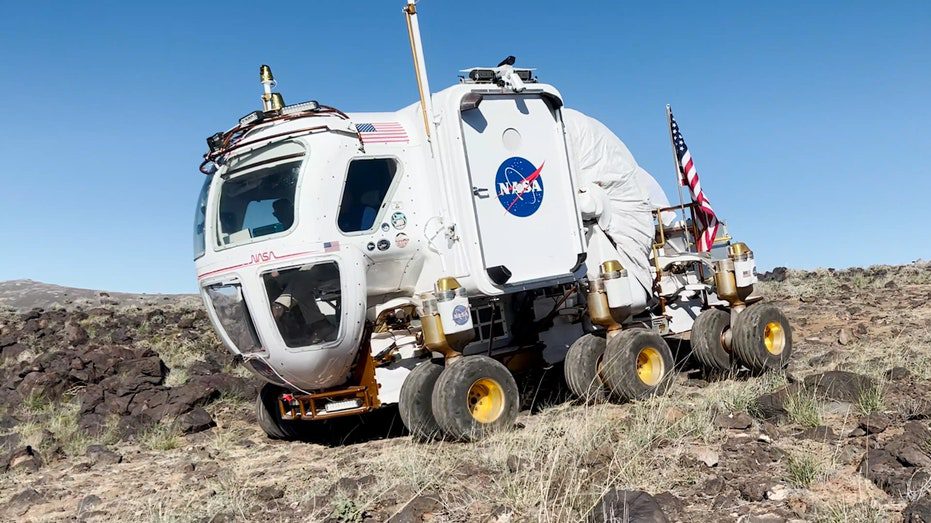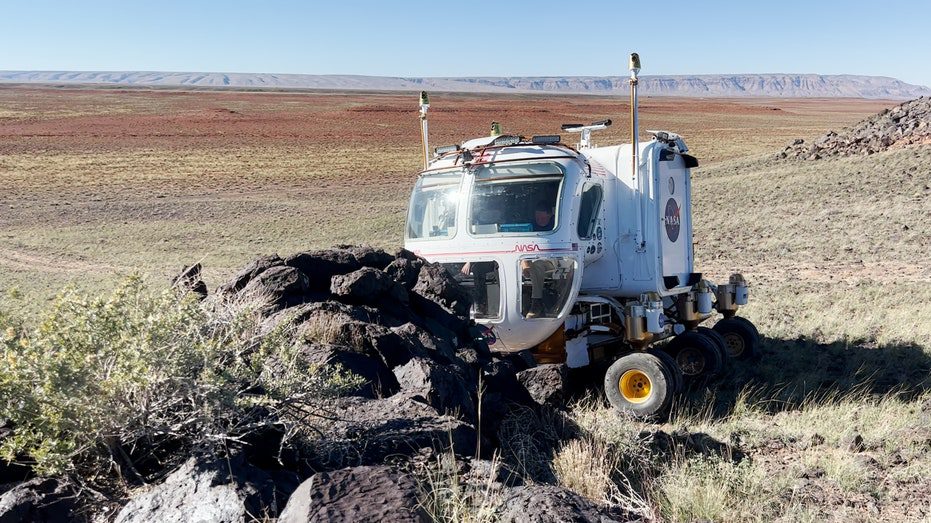To help prepare for future missions to the Moon and eventually Mars, NASA is testing a pressurized lunar rover prototype in northern Arizona.
FLAGSTAFF, Arizona – NASA plans to launch its Artemis 1 rocket into space in less than a month. It is part of I’m planning on getting Americans Return to the moon and explore more space. This will be the first time in five decades since the Apollo missions.
NASA’s team and partners, including the US Geological Survey, have been running rover operations about an hour from the Grand Canyon for more than two weeks. This training mission focuses primarily on performing operations on compact rovers and improving existing technology. NASA experts say these abilities are a key component of future Artemis missions.
The test explorer has been around for more than a decade. A team of scientists is working to improve the technology used today.
NASA conducts a training mission in Flagstaff, Arizona, because the landscape is similar to what astronauts would experience on the moon. (Fox News / Fox)
“We started with testing on Earth, then we moved on to testing on the Moon and then we used the Moon as a stepping stone to Mars,” said Barbara Januico, mission manager for Desert RATS.
NASA has launched the artwork, I will start the next effort
The crew members of RATS Desert are Lunar mission simulator In the desert living and working on a rover. During this exercise, NASA and the Japanese Aerospace Exploration Agency collected data on compact rover design, cabin configuration, driving patterns, time constraints, and missing processes to support potential design concepts for future. compact rover vehicles.
SPACEX launches 54 satellites into Earth orbit
This compact lunar module prototype is controlled by a single joystick and the cockpit can rotate to help astronauts explore and see different regions of the Moon and ultimately Mars. (Fox News / Fox)
“We have contributed in a very small way to determining how we would explore the surface of the Moon and then Mars as part of Artemis,” Janoiko said.
The lunar module has many functions Including how to walk with the crab, This will allow astronauts to ride over rough terrain and explore parts of the moon like never before.
“We will be in the south polar region of the moon, so there will be a completely different set of geology and lessons to be learned by exploring a different part of the moon than before,” Janoiko said.

NASA is using this compact lunar rover prototype to learn more about the limitations of current technology to help build newer versions for future Artemis missions. (Fox News / Fox)
Get your FOX business on the go by clicking here
NASA plans to deploy this pressurized spacecraft starting with Artemis III, which is expected to take place in 2025. The mission aims to place the first woman and first black person on the moon.


